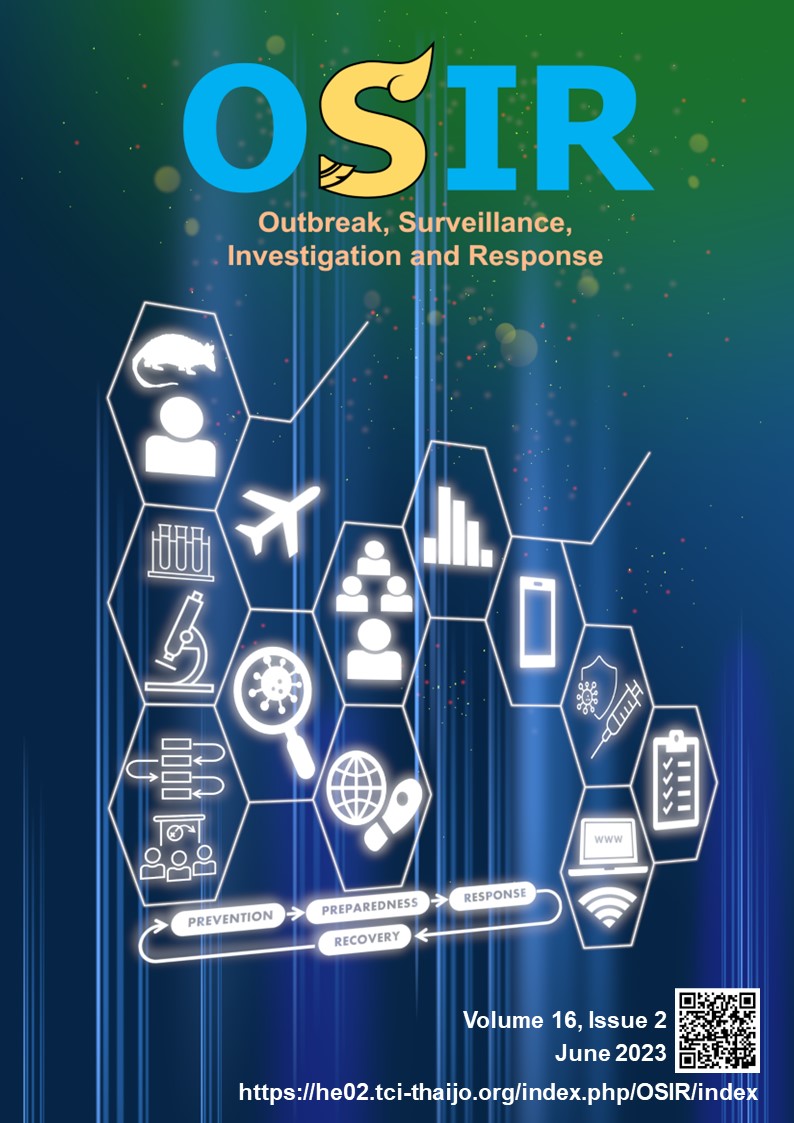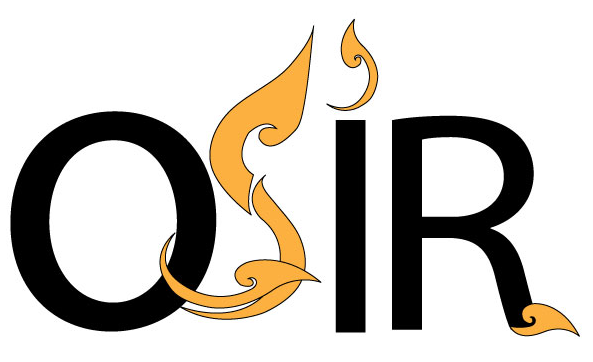Healthcare-associated Transmission of Lassa Fever, Sierra Leone, November 2019–January 2020
DOI:
https://doi.org/10.59096/osir.v16i2.263759Keywords:
Lassa fever, investigation, outbreak, Tonkolili, Sierra Leone, healthcareAbstract
On 20 Nov 2019 the Tonkolili District Health Office was notified that a physician working in the district hospital was diagnosed with Lassa Fever (LF). The Tonkolili District had its last LF case in 2012. An investigation was performed to determine mode of transmission, magnitude and scope of this outbreak. Clinical information, exposure history, and blood samples were collected. Active case search and Infection Prevention and Control (IPC) assessment were conducted in the hospital and community. Three of five people with symptoms compatible with LF were polymerase chain reaction positive. The primary case, a pregnant woman from the community, was admitted with severe bleeding and operated by two surgeons and anesthetist. The same medical staff operated on another woman later that day. Three of the five cases died. The hospital assessment revealed non-adherence to IPC procedures. The primary case’s residence had unhygienic conditions and inappropriate food storage. Low index of suspicion for LF and non-compliance to IPC procedures contributed to the associated healthcare workers’ infection spread. Health workers were sensitized to LF and trained on IPC. Education of the community in high-risk areas is recommended about LF recognition, transmission and ways to decrease rodent populations in and around their homes.
References
Formenty P. Introduction to Lassa fever [Internet]. Geneva: World Health Organization; 2019 Dec 27 [cited 2022 Feb 10]. <https://www.who.int/publications-detail-redirect/introduction-to-lassa-fever>
Fraser DW, Campbell CC, Monath TP, Goff PA, Gregg MB. Lassa fever in the Eastern Province of Sierra Leone, 1970–1972: I. Epidemiologic Studies. Am J Trop Med Hyg. 1974 Nov;23(6): 1131–9. doi:10.4269/ajtmh.1974.23.1131.
Balogun OO, Akande OW, Hamer DH. Lassa fever: an evolving emergency in West Africa. Am J Trop Med Hyg. 2020 Nov 23;104(2):466–73. doi:10.4269/ajtmh.20-0487.
Richmond JK, Baglole DJ. Lassa fever: epidemiology, clinical features, and social consequences. BMJ. 2003 Nov;327(7426): 1271–5. doi:10.1136/bmj.327.7426.1271.
Shaffer GJ, Grant DS, Schieffelin JS, Boisen ML, Goba A, Hartnett JN, et al. Lassa fever in post-conflict Sierra Leone. PLoS Negl Trop Dis. 2014 Mar;8(3):e2748. doi:10.1371/journal.pntd.0002748.
Statistics Sierra Leone. Sierra Leone 2015 population and housing census: national analytical report [Internet]. Freetown (SL): Statistics Sierra Leone; 2017 Oct [cited 2023 Apr 16]. p.539. <https://sierraleone.unfpa.org/sites/default/files/pub-pdf/National%20Analytical%20Report.pdf>
Kayem ND, Benson C, Aye CYL, Barker S, Tome M, Kennedy S, et al. Lassa fever in pregnancy: a systematic review and meta-analysis. Trans R Soc Trop Med Hyg. 2020 May;114(5):385–96. doi:10.1093/trstmh/traa011.
Okokhere P, Colubri A, Azubike C, Iruolagbe C, Osazuwa O, Tabrizi S, et al. Clinical and laboratory predictors of Lassa fever outcome in a dedicated treatment facility in Nigeria: an observational cohort study. Lancet Infect Dis. 2018 Jun;18(6):684–95. doi:10.1016/S1473-3099(18)30121-X.
Okogbenin S, Okoeguale J, Akpede G, Colubri A, Barnes KG, Mehta S, et al. Retrospective cohort study of Lassa fever in pregnancy, southern Nigeria. Emerg Infect Dis. 2019 Aug; 25(8):1494–500. doi:10.3201/eid2508.181299.
Bajani MD, Tomori O, Rollin PE, Harry TO, Bukbuk ND, Wilson L, et al. A survey for antibodies to Lassa virus among health workers in Nigeria. Trans R Soc Trop Med Hyg. 1997 Jul;91(4):379–81. doi:10.1016/S0035-9203(97)90247-9.
Ijarotimi IT, Ilesanmi OS, Aderinwale A, Abiodun-Adewusi O, Okon IM. Knowledge of Lassa fever and use of infection prevention and control facilities among health care workers during Lassa fever outbreak in Ondo State, Nigeria. Pan Afr Med J. 2018 May;30:56. doi:10.11604/pamj.2018.30.56.13125.
Aitken C, Jeffries DJ. Nosocomial Spread of Viral Disease. Clin Microbiol Rev. 2001 Jul;14(3):528–46. doi:10.1128/CMR.14.3.528-546.2001.
Downloads
Published
How to Cite
Issue
Section
License
Copyright (c) 2023 Outbreak, Surveillance, Investigation & Response (OSIR) Journal

This work is licensed under a Creative Commons Attribution-NonCommercial-NoDerivatives 4.0 International License.








